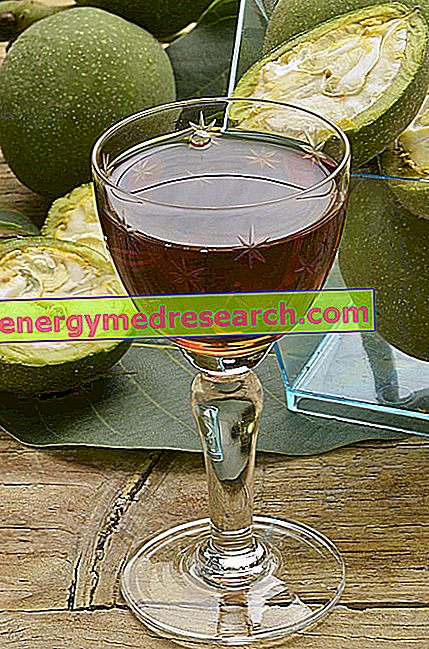Definition
It is rather curious, but the precise definition of constipation does not exist, given that the "frequency of evacuations" and the "intestinal regularity" are very subjective parameters. However, in general, constipation refers to a non-pathological condition in which faecal emission is scarce and / or infrequent. In the medical field, we speak of constipation when the evacuation delay is more than 60 hours, and the faeces are clearly dehydrated.
Causes
The causes involved in constipation are numerous and heterogeneous: the etiological elements can have physical-mechanical, functional, nutritional or psychological origins. The most common causes are: hormonal changes, anorexia, anxiety / stress, celiac disease, colitis, diabetes, weight loss or low fiber diet, diverticulitis, haemorrhoids, drugs, pregnancy, hypothyroidism, irritability, rhagades, sedentary life, irritable bowel syndrome.
Symptoms
In the context of constipation, also the symptoms, just like the causal factors, are multiple and subjective: difficulty in evacuation, hard / tape-shaped / dark stools, abdominal swelling, perception of intestinal obstruction (pathology), number of weekly evacuations less than 2 .
Natural Care
Diet and Nutrition
Information on Constipation - Drugs for the Treatment of Constipation are not intended to replace the direct relationship between health professional and patient. Always consult your doctor and / or specialist before taking constipation - Drugs for the treatment of constipation.
drugs
Before taking drugs for the treatment of constipation, the diagnosis is necessary: in fact, many patients require laxatives against constipation, when, in reality, they are not necessary.
Although it is established that constipation is a highly subjective condition, laxatives are certainly not indicated when, simply, there are no regular evacuations every day: following an excessive, excessive and unregulated intake of these drugs, the intestine tends to adapt and continually need their administration. Furthermore, the abuse of these active ingredients can generate hypocalcaemia.
Drugs for constipation are useful for treating the disorder itself, not the underlying cause, so often constipation only expresses a symptom that conceals some diseases or primary disorders.
The diet also represents another substantial element that heavily affects constipation: a diet low in fiber (or excessively rich) can increase evacuation difficulties, dragging all the symptoms that accompany the disorder.
Laxative drugs are particularly useful on several occasions:
- The evacuation effort is such as to aggravate a pathology (eg angina)
- The difficulty of evacuation increases the chances of rectal bleeding (haemorrhoid syndrome)
- Before surgery or diagnostic tests (eg colonoscopy)
- Constipation associated with bacterial infections: drugs are a valid aid to eliminate pathogens faster
- Drug-induced constipation
Anthraquinones (or contact laxatives): they work by increasing intestinal motility, but their side effects (abdominal cramps) hinder their use. They are not recommended for treating intestinal obstruction.
- Bisacodyl (eg Dulcolax, Stixenil, Alaxa): take 5-10 mg of drug in the evening (effect in 10-12 hours); alternatively, take 5 mg of medication in the morning in the form of suppositories (effect in 20-60 minutes)
- Senna (eg Xprep, Agiolax, Pursennid, Falquilax): the drug exercises its therapeutic activity in 8-12 hours. Available in powder and solvent for oral solution, take one or two teaspoons of product in the evening. Do not exceed the recommended dose.
- Sodium docusate (eg Macrolax, Sorbiclis): take orally max. 500 mg of drug per day, preferably in divided doses.
Other drugs belonging to this category may consist of: castor oil, cascara, frangula, rhubarb, aloe.
Volume laxatives : by increasing the fecal mass, volume laxatives promote peristalsis. It is important to know that these drugs carry out their therapeutic activity after a few days of treatment: therefore, the effect is not immediate. They are generally indicated for patients who do not take sufficient fiber with food. Volume laxatives must always be associated with abundant fluid intake to avoid intestinal obstruction.
- Methylcellulose: it also acts as an emollient. Take the drug for the treatment of constipation in the posology of 2 tablets of 1 gram, with plenty of water, 6 times a day. Consult your doctor.
- Sterculia gum (eg. Normacol): take 2-4 sachets a day, each containing 6.1 grams of rubber sterculia. It is recommended to take the product with plenty of water to treat occasional episodes of constipation.
- Psyllium seeds (eg Fibrolax): it is recommended to take the drug orally, at a dose of 3.5 grams after meals, 2-3 times a day, for 2-3 days. Take the product for the treatment of constipation with a lot of water, in order to increase the fecal content.
Emollients / lubricants : the progenitor of this class of drugs is liquid paraffin: the active ingredients are indicated in the case of hemorrhoids and fissures in the context of constipation.
- Liquid paraffin (eg Lacrilube, Paraf L BIN): the indicative dosage is 10-30 ml, when necessary.
- Peanut oil: formulated in the form of clisms, it lubricates and softens the intestinal content (compact), favoring intestinal motility.
- Glycerin (eg. Glycerine San Pellegrino suppositories): in the form of bladders, take 5.6 grams of drug by rectal route; alternatively, insert a 2-3 gram suppository as needed.
Osmotic laxatives : through an osmotic mechanism, these drugs are able to hold liquids in the intestine, or act by modifying the distribution of fluids in the fecal mass:
- Lactulose (eg Duphalac, Epalfen, Normase): it is recommended to start the treatment for constipation with a low dosage (15 ml of solution at 62-74%), twice a day. The dose should be modified according to the severity of the condition.
- Macrogol (eg. Movicol, Isocolan, Selg Esse, Moviprep, Paxabel): the dose should be established based on the subject.
Anticholinesterase (or para-sympathomimetic): these drugs against constipation are so named because they increase the activity of the parasympathetic system in the digestive tract, thus favoring peristalsis. They are not the first line drugs to treat constipation, since they involve numerous gastro-intestinal side effects.
- Betanecol (eg Myocholine): is a cholinergic agonist used - albeit rarely - to empty the bladder, and exert a mild prokinetic effect. Generally, it is taken orally at a dosage of 10-50 mg three times a day: the method of administration must be respected according to the doctor's instructions.
- Neostigmine (eg Prostigmine): available in vials (1 ml) for slow intramuscular / intravenous injection or as tablets taken by mouth. Intestinal peristalsis is observed 20-30 minutes after injection. Eventually, to facilitate the transit, it is possible to apply an enema (150-200 ml at 15-20% of glycerine), after 30 minutes from the injection.
Saline laxatives : indicated for occasional use in the treatment of constipation or before surgery at the level of the colon (the intestine must be completely clean).
- Phosphates (eg. Sod Fos Sof Clisma, Sod Fos Zet Clisma): used mostly before radiological examinations of the intestine or surgery. The dosage must be established by the doctor.
- Magnesium hydroxide (ES. Magnesia, Maalox): they are used when rapid bowel emptying is required. Take the drug preferably in the morning: usually a teaspoon of product with plenty of water is needed (the drug is available as a powder for oral suspension of 90 grams of active on 100 grams of product). The excessive use can give colic.
- Sodium Citrate (eg Biochetasi, Novilax): to balance intestinal motility in the context of constipation, take two effervescent tablets (425 mg of sodium citrate) three times a day, with water.



